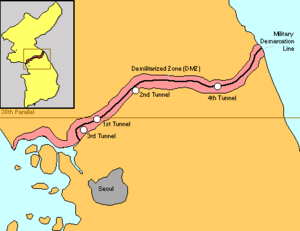Remarks on Project Head Start.
May 18, 1965
Mr. Shriver, ladies and gentlemen, distinguished guests:
On this beautiful spring day it is good to be outside in the Rose Garden. Of course, the White House is a place where when you go outside you are still inside.
In that same vein, I would note that the Rose Garden is a garden without roses today, and the Fish Room is now a room without fish. But there is one compensation--open nearly any door here in the West Wing and you are liable to run into Sargent Shriver, and sometimes you will find him in more than one room at the same time.
This is a very proud occasion for him and for us today, because it was less than 3 months ago that we opened a new war front on poverty. We set out to make certain that poverty's children would not be forevermore poverty's captives. We called our program Project Head Start.
The program was conceived not so much as a Federal effort but really as a neighborhood effort, and the response we have received from the neighborhoods and the communities has been most stirring and the most enthusiastic of any peacetime program that I can remember.
Today we are able to announce that we will have open, and we believe operating this summer, coast-to-coast, some 2,000 child development centers serving as many as possibly a half million children.
This means that nearly half the preschool children of poverty will get a head start on their future. These children will receive preschool training to prepare them for regular school in September. They will get medical and dental attention that they badly need, and parents will receive counseling on improving the home environment.
This is a most remarkable accomplishment and it has been done in a very short time. It would not be possible except for the willing and the enthusiastic cooperation of Americans throughout the country.
I believe this response reflects a realistic and a wholesome awakening in America. It shows that we are recognizing that poverty perpetuates itself.
Five and six year old children are inheritors of poverty's curse and not its creators. Unless we act these children will pass it on to the next generation, like a family birthmark.
This program this year means that 30 million man-years--the combined life span of these youngsters--will be spent productively and rewardingly, rather than wasted in tax-supported institutions or in welfare-supported lethargy.
I believe that this is one of the most constructive, and one of the most sensible, and also one of the most exciting programs that this Nation has ever undertaken. I don't say that just because the most ardent and most active and most enthusiastic supporter of this program happens to be the honorary national chairman, Mrs. Johnson.
We have taken up the age-old challenge of poverty and we don't intend to lose generations of our children to this enemy of the human race.
This program, like so many others, will succeed in proportion as it is supported by voluntary assistance and understanding from all of our people. So we are going to need a million good neighbors--volunteers--who will give their time for a few hours each week caring for these children, helping in a hundred ways to draw out their potentials. We need housewives and coeds. We need teachers and doctors. We need men and women of all walks and all interests to lend their talents, their warmth, their hands, and their hearts.
The bread that is cast upon these waters will surely return many thousandfold.
What a sense of achievement, and what great pride, and how happy that will make all of us who love America feel about this undertaking.
Thank you.
Citation: Lyndon B. Johnson:"Remarks on Project Head Start.," May 18, 1965.Online by Gerhard Peters and John T. Woolley,The American Presidency Project. http://www.presidency.ucsb.edu/ws/?pid=26973.


















_cover.jpg)


